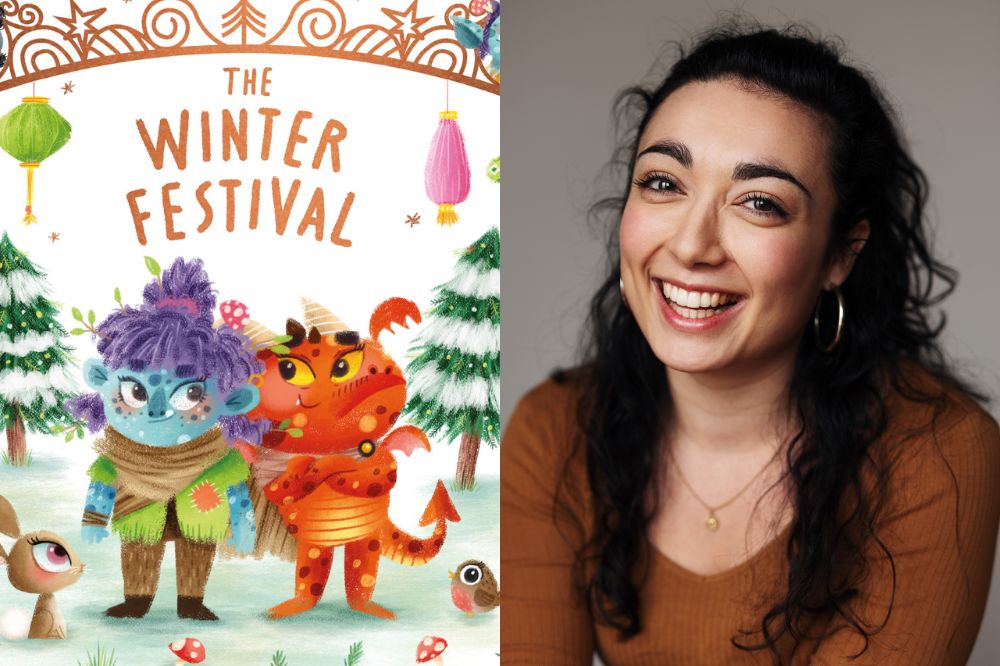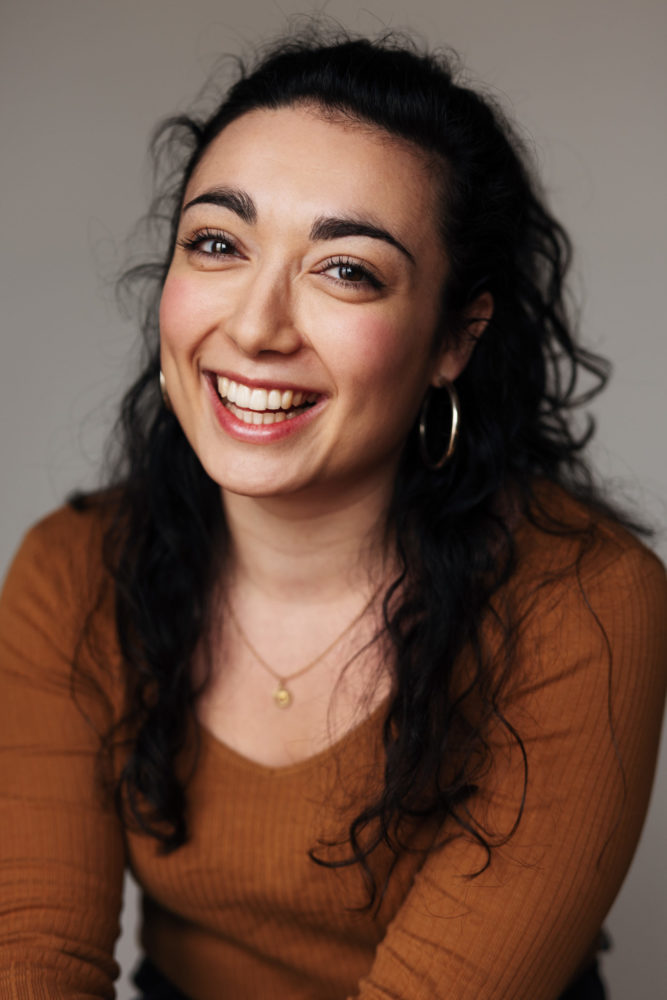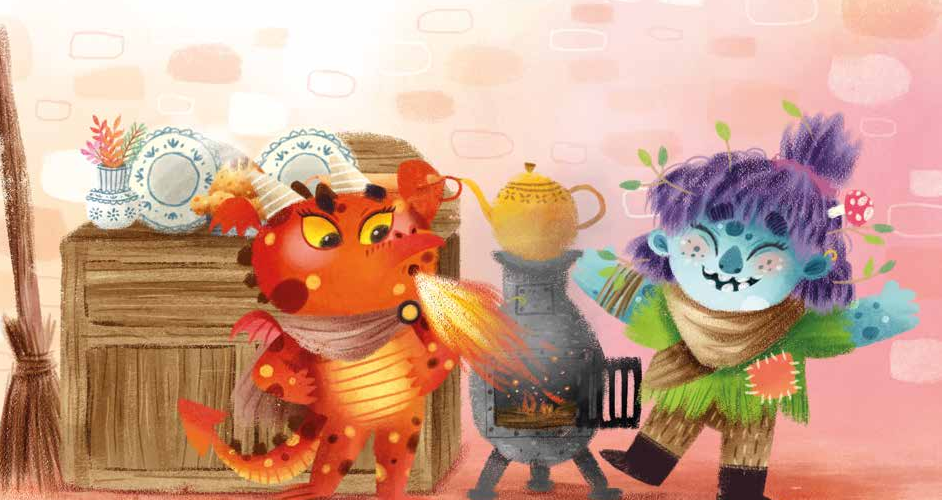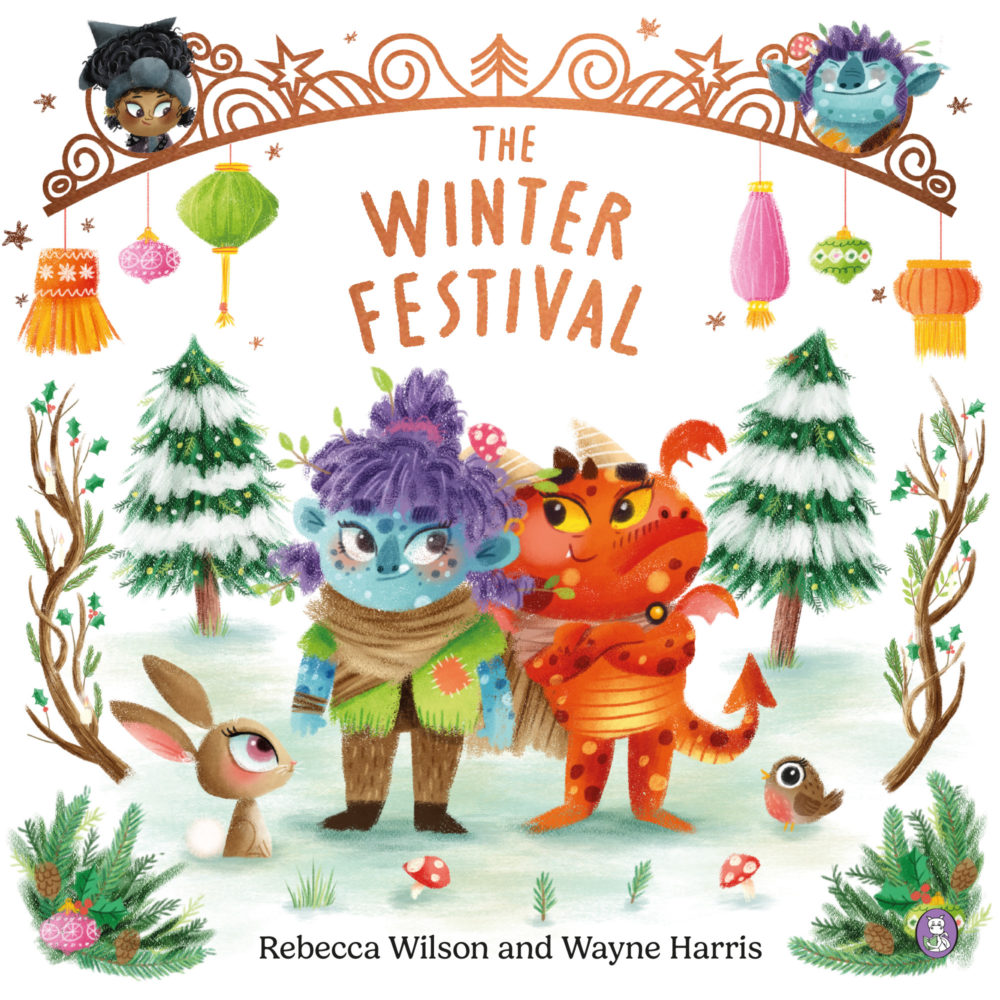Welsh roots, Jewish heritage, and unity

Llinos Dafydd
This winter, young readers can dive into a magical world rich in Welsh and Jewish heritage with The Winter Festival, a picture book by Rebecca Wilson.
Set in the mythical Snowy Mountains, the story follows five tribes who gather each year for a festival of peace – but not everyone is welcome.
The dragons, exiled generations ago, are still outcasts due to their fiery past, symbolizing The Winter Festival’s powerful themes of unity, forgiveness, and reconciliation.
Published by Gwasg Rily Publications and brought to life by Wayne Harris’s illustrations, The Winter Festival offers a fresh perspective in Welsh literature, celebrating the beauty of cultural connection.

In our conversation, Rebecca shares how her upbringing as a Jewish girl in north Wales, her love for fantasy, and her experience as an actor shaped The Winter Festival.
She hopes the book will encourage young readers to embrace different cultural backgrounds and see the magic in learning from one another.
Celebrating Welsh and Jewish heritage
Rebecca’s childhood as a Jewish girl in north Wales inspired her to create a story that celebrates both of these unique aspects of her life.
“I loved growing up in north Wales, and I equally love my Jewish heritage,” she says. “I wanted to share both of those with young people.”
As a child, she sometimes faced questions about her faith – most from curiosity, though some comments were hurtful. Her mother even visited her primary school to teach the pupils about Jewish holidays like Rosh Hashanah, Yom Kippur, and Shabbat dinners.

“At the time, I found it so embarrassing because, of course, all you want to do when you’re younger is fit in,” Rebecca recalls. “But now that I’m older, I’m much more comfortable with who I am. I wanted to create a fun resource for primary school teachers so that all children feel comfortable being themselves.”
The world of The Winter Festival reflects the Welsh landscape she loves.
The Snowy Mountains in the story are inspired by Eryri, and the witches of her story live in the Dinorwig quarries of her hometown.
Rebecca also drew from Hanukkah’s candle-lighting ritual and incorporated ideas from other traditions, like Lunar New Year, Eid, and Diwali, to create a festival that children of all backgrounds can connect with.
“The Welsh dragon inspired little Dewi Draig, one of the main characters,” she adds, illustrating how she wove her heritage into the heart of her story.
Fantasy as a gateway to understanding
For Rebecca, fantasy offers an inviting way for children to explore deeper ideas. “Fantasy is a powerful tool because it’s fun! We all need our imagination to be engaged when we’re learning, as it helps us stay focused,” she explains.
Through Dewi and Olive’s journey, young readers encounter ideas of unity, forgiveness, and empathy in a natural, exciting way. “We must not underestimate young people – they understand so much more than we think and are often more in tune with their feelings and what’s right and wrong than most adults. We’re the ones who complicate things!”

The fantastical setting of The Winter Festival allows children to engage with these complex themes in a way that feels safe and meaningful.
For Rebecca, the Snowy Mountains serve as a backdrop where cultures meet, offering a message of unity that goes beyond the book.
From stage to page
Rebecca’s background as an actor has played a significant role in shaping her storytelling style.
“I’ve been lucky enough to perform in several new plays and adaptations, so I’ve learned a lot about editing during the rehearsal process,” she says. Acting has taught her the value of immediate audience feedback, which she tries to envision as she writes.
“Creating characters as an actor helped me build the characters in the book,” she adds, noting that her experience on stage helped her infuse The Winter Festival with lively characters and emotional moments.
A new chapter for Welsh literature
Rebecca hopes that The Winter Festival will help bring inclusivity to Welsh literature, especially for young readers who may feel different or isolated.
“I hope it will make them feel more connected to those around them and to all aspects of their Welsh identity,” she says.
She’s thrilled by the support from the Books Council of Wales through their Rhyngom project, especially given the goal of reaching one million Welsh speakers by 2050.
“If we want to engage more communities with the Welsh language, we have to be more inclusive, and people need to feel represented by the culture,” she explains.
However, she acknowledges the funding challenges ahead and stresses the importance of maintaining this positive momentum for Welsh literature. “We must go forward, not backward.”
Looking forward
Looking ahead, Rebecca is excited about the possibility of future projects.
“I’d love to continue working on more books. Perhaps The Spring Festival could be next – who knows!” she laughs. At the heart of The Winter Festival is a message she hopes young readers will carry with them: “I hope they leave with curiosity about others, an appreciation for different cultures, and respect for diverse traditions.
But more than anything, I hope they learn that hope, peace, joy, and kindness should always be at the heart of everything they do.”

As Welsh literature continues to welcome diverse voices, The Winter Festival stands as a joyful celebration of unity, offering young readers a story that highlights the beauty of connection across cultures.
Gŵyl y Gaeaf / The Winter Festival is available now at your local bookstore and online, both in Cymraeg and English.
Support our Nation today
For the price of a cup of coffee a month you can help us create an independent, not-for-profit, national news service for the people of Wales, by the people of Wales.







